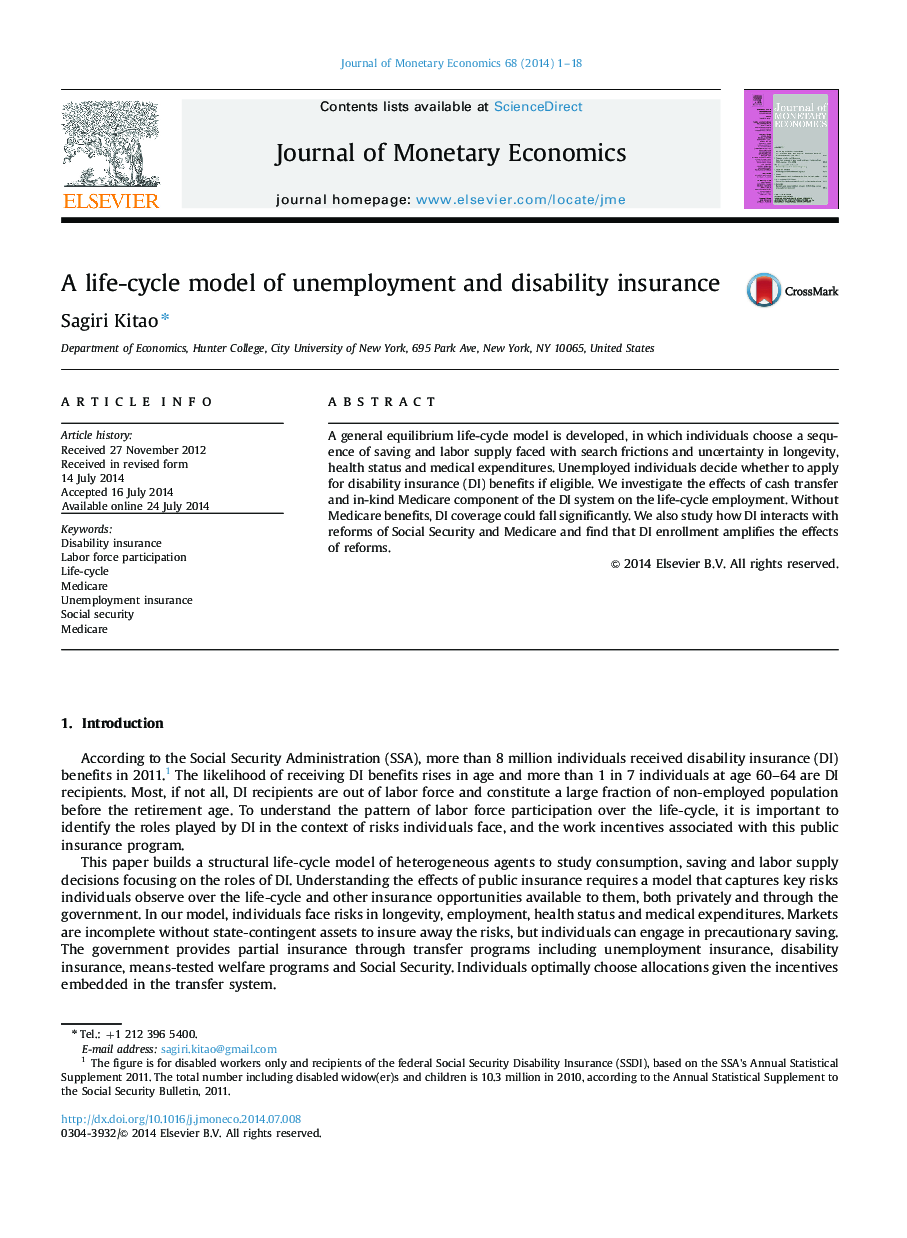| Article ID | Journal | Published Year | Pages | File Type |
|---|---|---|---|---|
| 967617 | Journal of Monetary Economics | 2014 | 18 Pages |
•The paper models individuals׳ decisions to enroll in the disability insurance.•Both cash and in-kind benefits are important in explaining the magnitude of the DI overage.•The paper studies how DI interacts with reforms of Social Security, Medicare and unemployment insurance.•The changes in DI enrollment amplify the effects of reforms to Social Security and Medicare.
A general equilibrium life-cycle model is developed, in which individuals choose a sequence of saving and labor supply faced with search frictions and uncertainty in longevity, health status and medical expenditures. Unemployed individuals decide whether to apply for disability insurance (DI) benefits if eligible. We investigate the effects of cash transfer and in-kind Medicare component of the DI system on the life-cycle employment. Without Medicare benefits, DI coverage could fall significantly. We also study how DI interacts with reforms of Social Security and Medicare and find that DI enrollment amplifies the effects of reforms.
